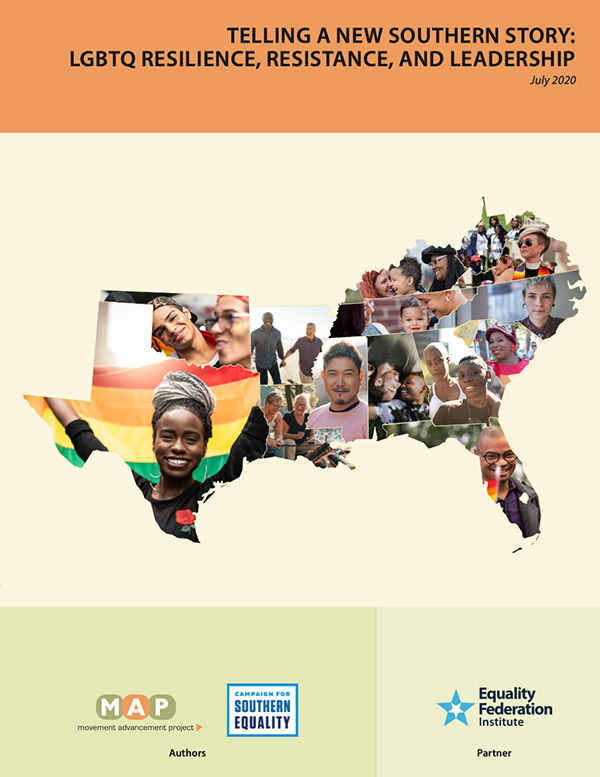Telling a New Southern Story: LGBTQ Resilience, Resistance, and Leadership (PDF)Download Press Release: New Report on LGBTQ People in U.S. South Highlights Unique Challenges and ResilienceVisit
Despite being home to the most hostile policy landscape in the country for LGBTQ issues, the South is also home to some of the most innovative, resilient, and effective LGBTQ organizing and activism in the country. The Movement Advancement Project released a new report, Telling a New Southern Story: LGBTQ Resilience, Resistance, and Leadership, which explores the unique experiences of LGBTQ Southerners and the innovative ways they build community, provide direct support, and make cultural and political change in the region.
Released in partnership with the Campaign for Southern Equality and Equality Federation, this report examines the experiences and advocacy strategies of LGBTQ people in the U.S. South. Despite the recent U.S. Supreme Court ruling affirming employment discrimination protections nationwide, 93% of LGBTQ Southerners live in a state with a low or negative LGBTQ equality score, reflecting laws which impact virtually every aspect of daily life. Additionally, key cornerstones of Southern culture—including religious conservatism, one-party control, and the legacy of slavery—make the South unlike any other region in the country.
The report outlines challenges that LGBTQ people in the South face, including economic insecurity, criminalization, violence and harassment, and disparities in health access and outcomes. However, the work of LGBTQ advocates in the region demonstrates innovation and creativity in responding to these challenges. LGBTQ Southerners often work outside the state legislative context, focus on community building, and directly address the immediate needs of LGBTQ Southerners by providing housing, food, and healthcare access. Advocates are adept at seizing opportunities to educate and change hearts and minds.
Southern LGBTQ organizations spotlighted in report include Equality Florida, Gender Benders (South Carolina), Knights & Orchids Society (Alabama), Nationz Foundation (Virginia), Southerners on New Ground (North Carolina), STAY Project (Appalachia region), and Transform Houston.
Recommended citation:
Movement Advancement Project. July 2020.
Telling a New Southern Story: LGBTQ Resilience, Resistance, and Leadership.
www.lgbtmap.org/regional-south. [Date of access].


